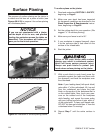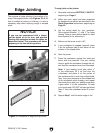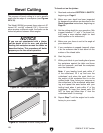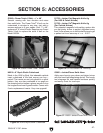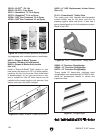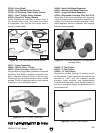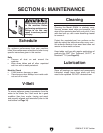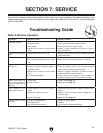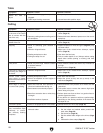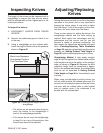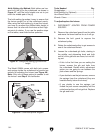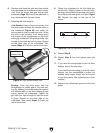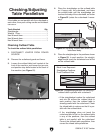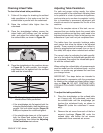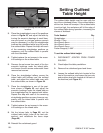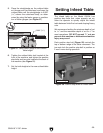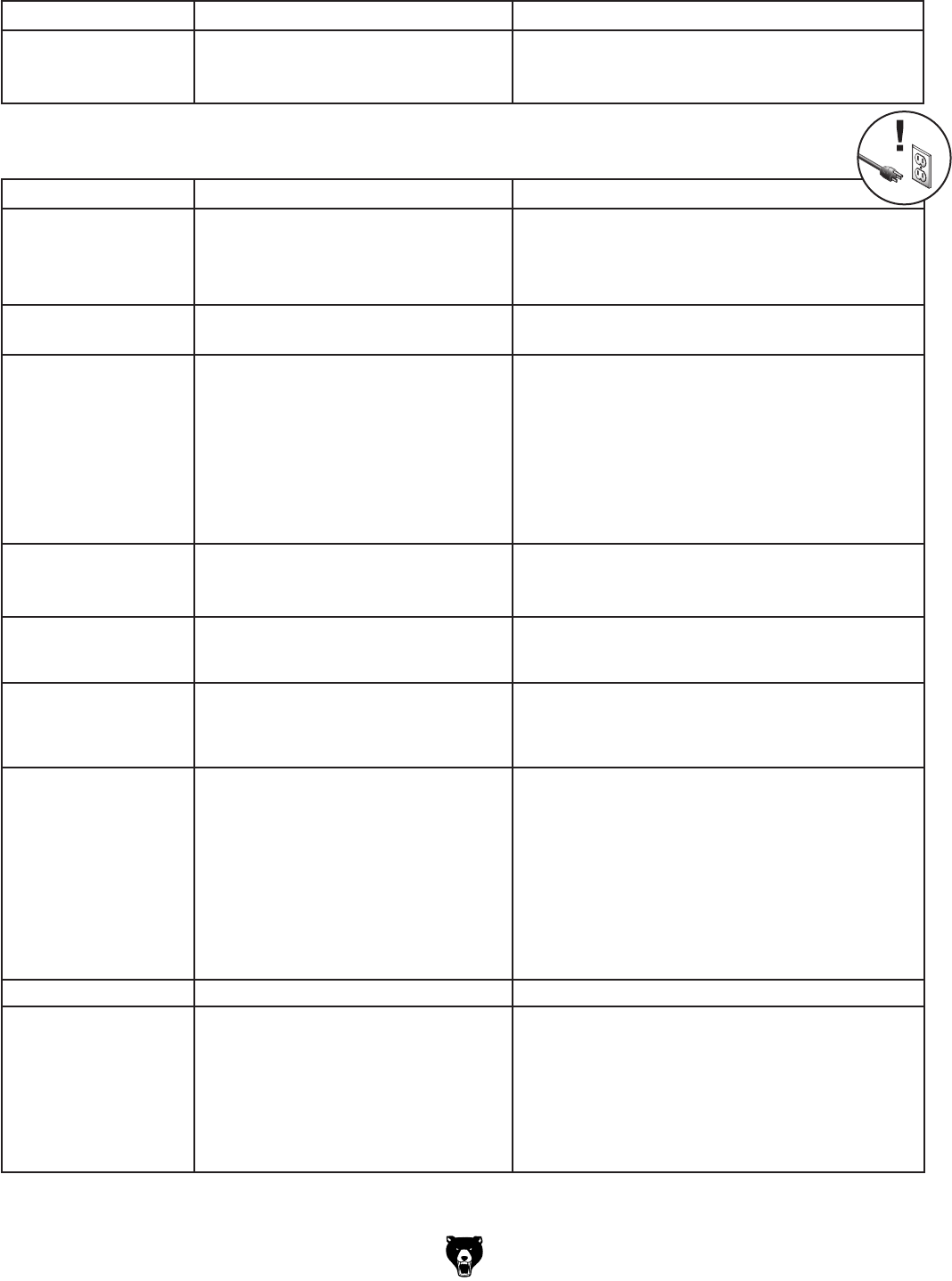
-32-
G0604 6" X 56" Jointer
Symptom Possible Cause Possible Solution
Tables are hard to
adjust.
1. Table lock is engaged or partially
engaged.
2. Table stops blocking movement.
1. Completely loosen the table lock.
2. Loosen/reset table positive stops.
Table
Symptom Possible Cause Possible Solution
Excessive snipe (gouge
in the end of the board
that is uneven with the
rest of the cut).
1. Outfeed table is set too low.
2. Operator pushing down on trailing end of
the workpiece.
1. Align outfeed table with cutterhead knife at top dead
center (
Page 15).
2. Reduce/eliminate downward pressure on that end of
workpiece.
Workpiece stops in the
middle of the cut.
1. Outfeed table is set too high. 1. Align outfeed table with cutterhead knife at top dead
center (
Page 15).
Chipping. 1. Knots or conflicting grain direction in
wood.
2. Nicked or chipped blades.
3. Feeding workpiece too fast.
4. Taking too deep of a cut.
1. Inspect workpiece for knots and grain (
Page 22); only
use clean stock.
2. Adjust one of the nicked knives sideways; replace
knives (
Page 33).
3. Slow down the feed rate.
4. Take a smaller depth of cut. (Always reduce cutting
depth when surface planing or working with hard
woods.)
Fuzzy Grain. 1. Wood may have high moisture content
or surface wetness.
2. Dull knives.
1. Check moisture content and allow to dry if moisture is
too high.
2. Replace knives (
Page 33).
Long lines or ridges that
run along the length of
the board.
1. Nicked or chipped knives. 1. Adjust one of the nicked knives sideways; replace
knives (
Page 33).
Uneven cutter marks,
wavy surface, or chatter
marks across the face of
the board.
1. Feeding workpiece too fast.
2. Knives not adjusted at even heights in
the cutterhead.
1. Slow down the feed rate.
2. Adjust the knives so they are set up evenly in the
cutterhead (
Page 33).
Board edge is concave
or convex after jointing.
1. Board not held with even pressure on
infeed and outfeed table during cut.
2. Board started out extremely warped.
3. Board has excessive bow or twist along
its length.
4. Insufficient number of passes.
1. Hold board with even pressure as it moves over the
cutterhead.
2. Take partial cuts to remove the extreme high spots
before doing a full pass.
3. Surface plane one face so there is a good surface to
position against the fence.
4. It may take 3 to 5 passes to achieve a perfect edge,
depending on the starting condition of the board and
the depth of cut.
Cuts aren't square. 1. Fence is not perpendicular to the tables. 1. Recalibrate the 90° fence stop (
Page 40).
Overall cut quality is
poor; inconsistent snipe
problems; or consis
-
tent difficulty feeding
workpiece.
1. Infeed and outfeed tables are not parallel
with each other.
1. Recalibrate the jointer in this order:
a. Set the infeed and outfeed tables parallel with
each other (
Page 36).
b. Set the knives (
Page 33).
c. Set the outfeed table height to the knives (
Page
38).
d. Calibrate the fence stops (
Page 40).
Cutting



